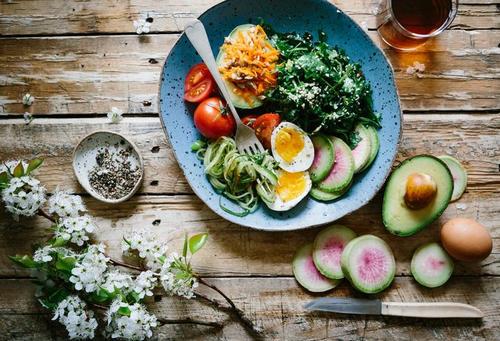The lack of research has left room for a host of myths about the best ways to treat a hangover, most of which are based on unconfirmed evidence.
Despite the prevalence of a hangover, there is little research to develop effective treatments for it. Of the available studies, most are of poor quality and are considered inconclusive.
A large number of factors that can affect the severity and duration of a hangover make it difficult for scientists to study potential remedies for a hangover.
These factors include:
- Type and amount of alcohol;
- The frequency of alcohol consumption;
- Gender and age;
- Body type;
- Biological factors;
- Individual characteristics.
Some people may even have a genetic predisposition to a more severe hangover than others.

How to prevent a hangover?
Despite the fact that there are no scientifically proven remedies for a hangover, there are effective ways to prevent it. Certain factors can reduce the severity of a hangover, for example:
- Moderation. The only sure way to avoid a hangover is to not drink alcohol. The less alcohol you drink the night before, the more pleasant your morning will be.
- Avoid congeners. Some alcoholic beverages cause a worse hangover than others. Drinks high in congeners often cause a hangover. Such drinks include whiskey, cognac and tequila. Vodka, rum and gin are low-congener drinks.
- Get enough sleep. Alcohol can affect a person’s quality of sleep, so quality sleep can reduce a hangover.
- Maintain water balance. Drinking water while drinking alcohol will help neutralize the diuretic effect of alcohol to reduce dehydration, leading to headaches and other symptoms of a hangover.
- Do not drink on an empty stomach. Food can reduce the amount of time it takes for alcohol to enter the bloodstream, keeping blood alcohol levels low. This can reduce the effects of a hangover.
Waking up in the morning after a noisy party, you can feel tiredness, nausea, clouding in the head and irritability.
These symptoms are often caused by the following consequences of drinking alcohol:
- Dehydration;
- Electrolyte imbalance;
- Alcohol withdrawal syndrome;
- Low blood sugar;
- Inflammation of the stomach and intestines.
- Sleep disturbances.
Unfortunately, there are no special foods, drinks, or magic pills for treating a hangover, but some medicines and home remedies can alleviate the symptoms of this unpleasant condition. Let’s talk about the most effective.
Medication
Although direct research into how over-the-counter medicines are effective in a hangover syndrome is scarce, some drugs may still help in resolving the symptoms.

Anti-inflammatory drugs
Aspirin and other anti-inflammatory drugs, such as ibuprofen and naproxen, are effective in relieving pain. These drugs can reduce the inflammation in the body that causes alcohol to relieve headaches and muscle pain.
However, use anti-inflammatory drugs for a hangover with caution, since drugs can additionally irritate the gastric mucosa. Regular use of these drugs can lead to stomach ulcers. For this reason, some doctors caution against fasting ibuprofen.
Antacids
Antacids act by neutralizing stomach acid, alleviating indigestion. Taking antacids can reduce nausea, heartburn, and indigestion caused by drinking alcohol. This is a good option for people who have nausea as the main symptom of a hangover.
Water
Alcohol is a diuretic, which means that it increases the amount of urine. Fluid loss can cause dehydration and an electrolyte imbalance. These factors contribute to a hangover.
Drinking water while drinking alcohol can prevent or reduce a hangover. Try to drink a glass of water between each alcoholic drink and before going to bed.
Rehydration powders
Many people also consume sports drinks that contain electrolytes, or rehydration powders to restore electrolyte balance in the body. However, there are currently no studies proving the effectiveness of these agents.
Breakfast
When the body destroys alcohol, the level of lactic acid increases. This causes a decrease in blood sugar, which can contribute to a hangover. Breakfast helps regulate blood sugar, partially reducing this discomfort. The human body also needs nutrients, which include proteins, carbohydrates, healthy fats and vitamins for recovery.
There are currently no studies to support that certain foods, such as fatty or fried breakfasts, are more effective than others. However, many people still believe that carbohydrates are especially effective for the “absorption” of alcohol.
Antioxidants
Alcohol causes oxidative stress, causing the body to produce free radicals. Antioxidants come to the rescue here. Research has linked oxidative stress to many diseases, including heart disease and cancer. Antioxidants – compounds that help destroy these “pests”.
Good nutritional sources of antioxidants include:
- Berries
- Cherry;
- Grapes
- Grenades;
- Carrot;
- Spinach;
- Ginger;
- Dark chocolate;
- Nuts and seeds;
- Green and black tea.
Coffee or tea
Coffee and other caffeinated drinks act as stimulants that help relieve the fatigue accompanying a hangover. In addition, these drinks contain some antioxidants that can reduce the adverse effects of drinking alcohol.
However, caffeinated drinks are diuretics that can exacerbate the effects of dehydration. Caffeine does not alter the alcohol content of a person’s blood; therefore, it does not reduce the health risks associated with drinking alcohol.
We told you how to avoid a hangover and what will help get rid of it. Follow these simple tips to make you feel great the next day!



